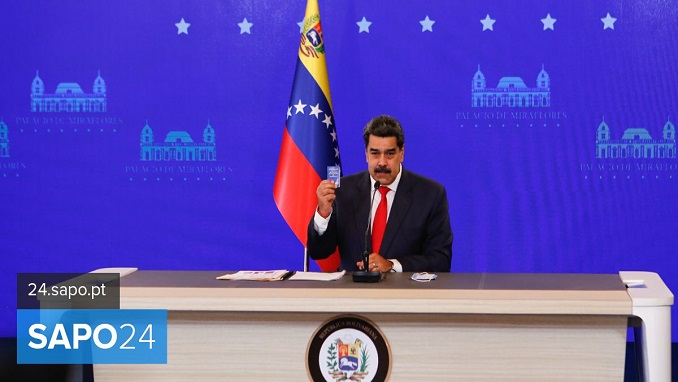Nicolas Maduro has accused Colombia of masterminding an attack against the Venezuelan military with support from the country’s president Ivan Duque, Sputnik reports.
“Colombia is preparing new attacks against the country’s military, with trained mercenaries, with funding from Ivan Duque, preparing attacks at the end of this year,” Maduro said in a speech that he shared with followers on Twitter.
Considering the moves taken in this regard, Maduro ordered the implementation of a plan to stop and protect the country’s military centers within 24 hours.
Maduro also demanded that all information about Colombia’s plans should be collected and called on the people of the country to protect the country’s military units, garrisons and ships. Maduro said military exercises called the “Bolivarian Shield” would be held to protect Venezuela at any time.
“The new method is that we will no longer publicly announce the date of these exercises so that order of operations will remain secret and we will mobilize the Bolivarian National Armed Forces and people,” he added.
Maduro also asked the Strategic Operations Command to submit proposals for the creation of fortifications on Jan. 1. Venezuelan president also ordered the repair and maintenance of all of the country’s weapons systems with the support of Russia, China, Belarus, and Iran and under national protection.
Earlier, Venezuela’s oil minister announced that a plot to attack one of the country’s key refineries had been foiled.
Tensions Rise, Allegations Persist
In May, the Maduro government said that it had prevented a sea of intrusion from Colombia’s “terrorist mercenaries” who presumably arrived on speedboats at the Venezuelan state of La Guaira along its northern coast, according to Venezuelan Interior Minister Nestor Reverol. It was reported that the three detected boats, which were loaded with weapons, belonged to the Colombian Navy.
President Maduro accused Colombia at that time of attempting to oust him with the help of the United States, claims Bogota said were unfounded.
The Venezuelan opposition, led by Juan Guaidó, the president of the previous National Assembly, who in January 2019 declared himself the country’s acting president, claimed that the May incident was staged to distract the population from internal problems.
Colombia, the United States and dozens of other countries formally recognised Guaidó as the country’s leader. Maduro, however, retained control of the national army, and is endorsed by a number of global powers, including Russia, Cuba, South Africa and China.
Even prior to the contested election, Colombian-Venezuelan relations were severely tangled over a number of centuries-long disputes. The Maduro government blamed Colombia for a 2018 drone attack that was carried out in Caracas close to a place where the president was delivering a speech to the Bolivarian National Guard, specifically pointing the finger at then-President Juan Manuel Santos over an alleged plot to assassinate Maduro.
Shortly after that, the incoming Colombian president Duque said that he would not recognise Maduro’s government and would not have an ambassador in Caracas.
Venezuela broke off diplomatic relations with Colombia in February 2019, after Bogota cooperated with the country’s opposition in bringing what was described as humanitarian aid into the country.
“Patience is exhausted, I can’t bare it anymore, we can’t keep putting up with Colombian territory being used for attacks against Venezuela,” Maduro said back then, while calling the Colombian government “fascist”.
In early December, Maduro said that there was a plan to assassinate him during the country’s parliamentary election. The president said that he had learned about the alleged plot from a “reliable source in the Colombian intelligence”, information that had prompted him to change a polling station. He blamed the Colombian President Ivan Duque for playing a role in the alleged plan.
